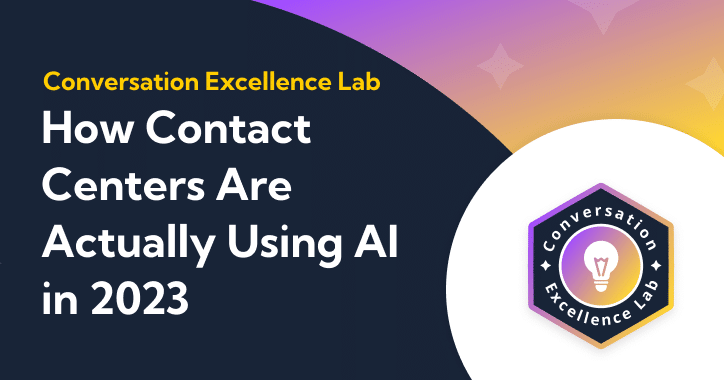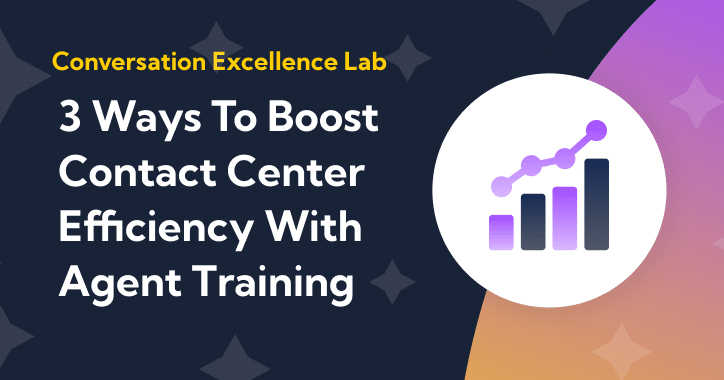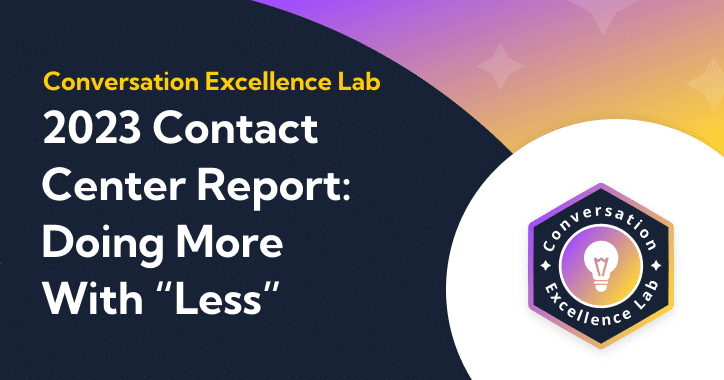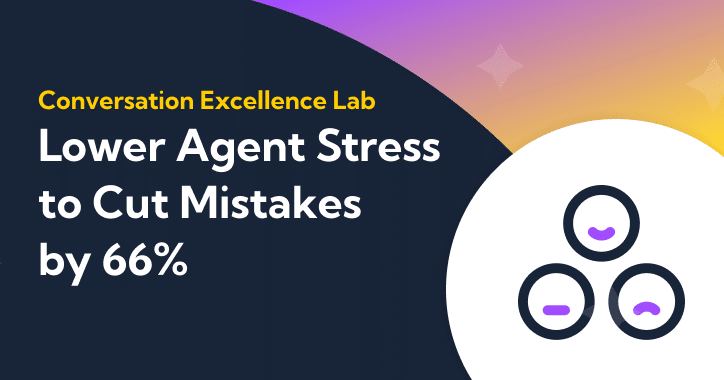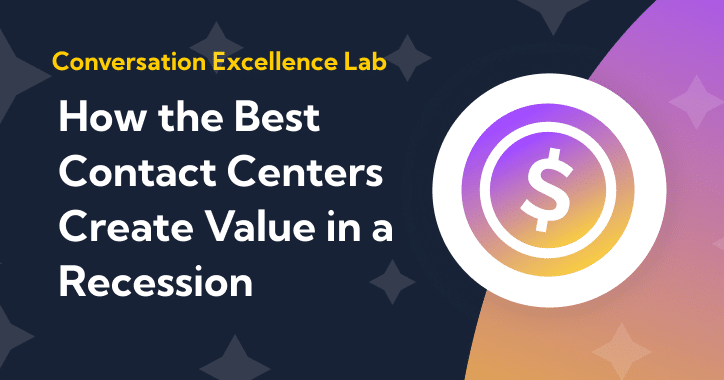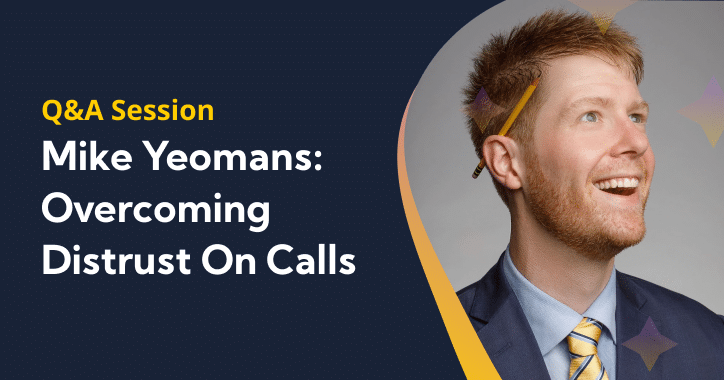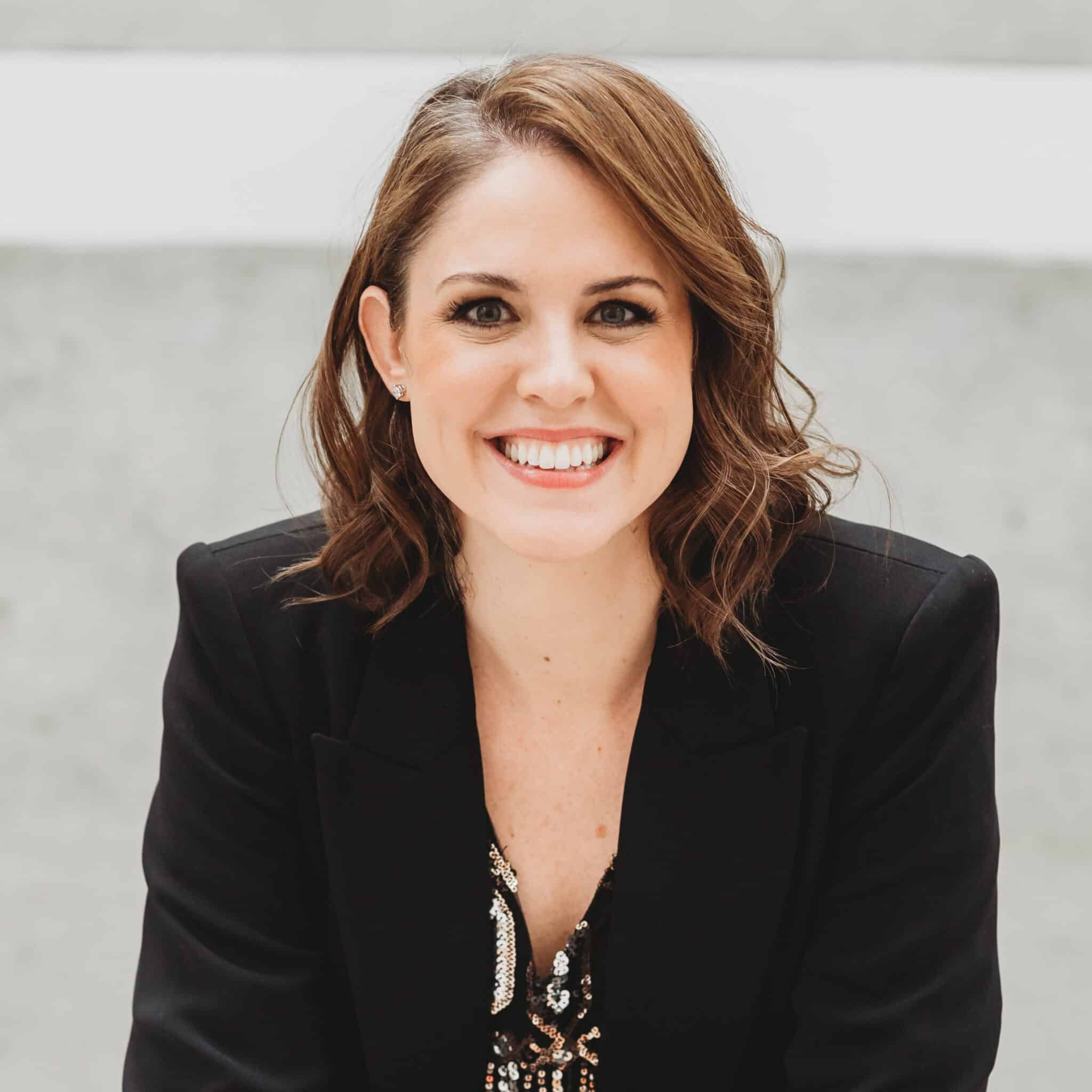
We know soft skills are important for the contact center. They build rapport between customers and agents, establish empathy for both parties, and increase liking and brand loyalty. But can they cause harm if harnessed incorrectly?
Harvard professor and behavioral research scientist Alison Wood Brooks has spent her life studying interactions between humans. We sat down with her to talk about how some of the basic tenets of conversations — humor, small talk, and asking questions — impact customer interactions, and different ways that soft skills can be used incorrectly.
This piece is part of a series of Q&A sessions highlighting our research partners. Subscribe to future Conversation Excellence Lab reports below:
Q: Have you ever worked as a front-line representative in customer service, collections, or sales?
A: There’s a lot of salesmanship as a scholar, believe it or not. You need to work incredibly hard on research, but then we must disseminate and sell our ideas for any sort of impact. If you’re not out there selling your ideas to people in the field and outside of academia, you're doing yourself and the world a disservice. There’s an element of sales and customer service in almost any industry and any job. Even when I was 15 and scooping ice cream or working at the local amusement parks, there were elements of customer service and sales in that experience. Even with cotton candy, always be selling.
Q: You study the relationship-building effects of humor extensively. How does that play into customer service or sales calls?
A: The science of conversation is still nascent, and we have so much left to learn. Of all the topics we study, humor and laughter might be a piece that we know the least about. It’s just so hard to study because humor is very context-dependent. Something that is funny during this conversation would not be funny anywhere else or even five minutes later during this same conversation.
Laughter serves many purposes other than expressing joy or that you find something funny. Over 70% of laughter occurrences are not related to expressing mirth. It’s for smoothing conversations, it’s politeness, or filling space. It has social and self-service functions that are not related to happiness and joy, like interactions in customer service.
"Instead of thinking, “I need to be funny now” in the middle of a call, which puts so much pressure on yourself, think more about how to keep your eye on a conversational temperature gauge."
Instead of thinking, “I need to be funny now” in the middle of a call, which puts so much pressure on yourself, think more about how to keep your eye on a conversational temperature gauge. At one end of the temperature scale, things feel hostile or confrontational. And the other end is boredom. When I think about levity and humor, I think it’s effective to look at where we are on that scale. We can all sense when things are too hot or too cold. Humor can be a release valve to regulate the temperature.
Q: Can humor help agents who are feeling anxious on calls? When can it go wrong?
A: Humor serves all kinds of goals on both sides of the conversation. If it’s built into your script or your habits on a call, it can be a great way to bide your time before moving on to the main topic. But it depends on how it lands with the person you’re calling. It’s great when it lands well, but some humor can be too violating or just not that funny. Between these two, the bigger risk is being inappropriate. Even when a joke isn’t funny, research shows you still get a boost in perceptions of your confidence. So the take-away is, air on the side of being gentle rather than too harsh.
Q: What about small talk? Many people find small talk to be boring or would rather jump to the chase.
A: Small talk gets a bad rap, but it serves an important purpose. It shows everyone involved that we all know how conversations are supposed to start. It also serves as a search function. You’re biding your time on easy topics to give your mind time to come up with more interesting things or latch onto something someone said. Skipping small talk altogether can feel odd, aggressive, and impersonal.
Q: Another subject you’ve studied extensively is question-asking during conversations. Tell me more about how question-asking increases liking and how that translates to customer interactions.
A: Questions are magic and do great things. They’re how we come to like and know each other. You’re more likable if you ask questions because it shows you care to understand what someone is thinking.
"Where customer service breaks down when you're asking questions is when the customer starts to feel like you’re asking these things because you have to and you don’t care about their answers."
In the context of negotiation, we know that asking open-ended questions helps us learn more about your counterpart and what their motivations are. The power of questions is at its best when the person you’re asking feels that the questions are backed by curiosity and care.
We have a paper coming out soon about asking open-ended questions — people answer with 2x the word count and you learn more about them when you ask an open-ended question. That creates more value for you, and for your team.
Q: Is there a way to do small talk incorrectly?
A: Where customer service breaks down when you're asking questions is when the customer starts to feel like you’re asking these things because you have to and you don’t care about their answers.
What customer service should try to do is sustain the magic by looking curious and caring about the answers — repeat what you’ve heard, tell them you really want to understand and care to help fix the problem. That means good listening behaviors like acknowledging, affirming, paraphrasing, and repeating.
Q: What inspires you to study conversations?
A: I have an identical twin. When I think about why I’m inspired to do this work, part of it is because I grew up with a doppelganger and I watched her interact in the social world my whole life. It’s like watching game-day footage of yourself in real-time. The level of feedback that you get is much higher than other people—it’s wild.
I had a talk partner right next to me my whole life and I’m still not perfect at conversation—far from it. So how do people with feedback navigate the complexities of conversation? That’s where Balto comes in— you're recording people so they can learn from their own behavior.
The Conversation Excellence Lab is Balto’s hub for academic-level research. The Lab creates thought-leading content with the support of research teams and in-house data. All reports are published online and available for free. Readers can get reports sent directly to their inbox by subscribing to the Conversation Excellence Lab’s newsletter.
Alison Wood Brooks is the O’Brien Associate Professor of Business Administration and Hellman Faculty Fellow at the Harvard Business School. She studies the behavioral science of conversation, teaches and award-winning course in the MBA curriculum called TALK, and chairs a program for executives called Communicating for Impact. She was named a Best 40-Under-40 Business School Professor in 2021 by Poets & Quants. She plan to release her first book, Light up the World: The Science of Conversation and the Art of Being Human (Crown), in Fall 2023.

